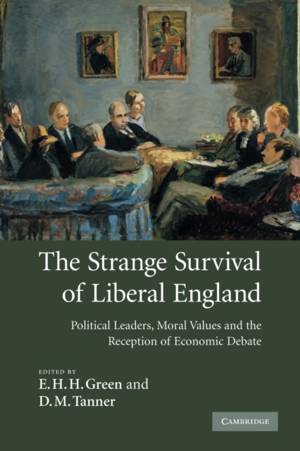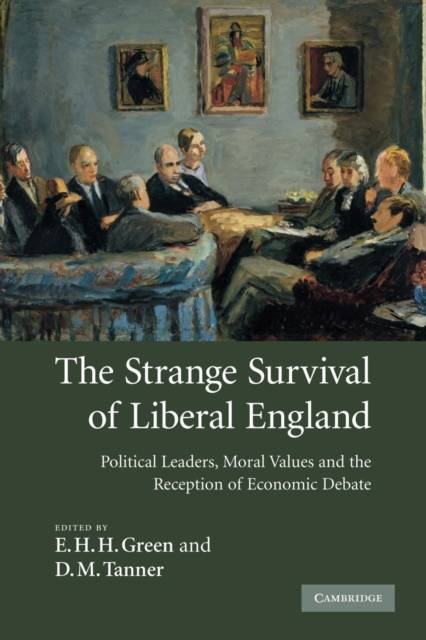
Je cadeautjes zeker op tijd in huis hebben voor de feestdagen? Kom langs in onze winkels en vind het perfecte geschenk!
- Afhalen na 1 uur in een winkel met voorraad
- Gratis thuislevering in België vanaf € 30
- Ruim aanbod met 7 miljoen producten
Je cadeautjes zeker op tijd in huis hebben voor de feestdagen? Kom langs in onze winkels en vind het perfecte geschenk!
- Afhalen na 1 uur in een winkel met voorraad
- Gratis thuislevering in België vanaf € 30
- Ruim aanbod met 7 miljoen producten
Zoeken
The Strange Survival of Liberal England
Political Leaders, Moral Values and the Reception of Economic Debate
Green
Paperback | Engels
€ 55,45
+ 110 punten
Omschrijving
It is often assumed that politicians are swept along by global forces and influences, without the power - or the desire - to shape events. By contrast, this book is concerned with the way that cultural values, individual moral sentiments and politicians' interpretation of economic and other imperatives have helped to shape political values. Focusing on the nineteenth and twentieth centuries, and containing contributions by a series of prominent scholars, themes are developed through essays on recognisably important events and figures. Subjects include the policy ideas of W. E. Gladstone, Woodrow Wilson's support for war in 1916 and Ramsay MacDonald's role in the 1931 crisis. Other essays examine the way that Keynesian ideas were understood and used across the party spectrum, and beyond Britain itself, or reflect on the relationship between ideas, values and politics. This volume also celebrates and represents an approach to historical writing which has received little attention from scholars.
Specificaties
Betrokkenen
- Auteur(s):
- Uitgeverij:
Inhoud
- Aantal bladzijden:
- 328
- Taal:
- Engels
Eigenschappen
- Productcode (EAN):
- 9780521329613
- Verschijningsdatum:
- 30/06/2011
- Uitvoering:
- Paperback
- Formaat:
- Trade paperback (VS)
- Afmetingen:
- 152 mm x 229 mm
- Gewicht:
- 439 g

Alleen bij Standaard Boekhandel
+ 110 punten op je klantenkaart van Standaard Boekhandel
Beoordelingen
We publiceren alleen reviews die voldoen aan de voorwaarden voor reviews. Bekijk onze voorwaarden voor reviews.









